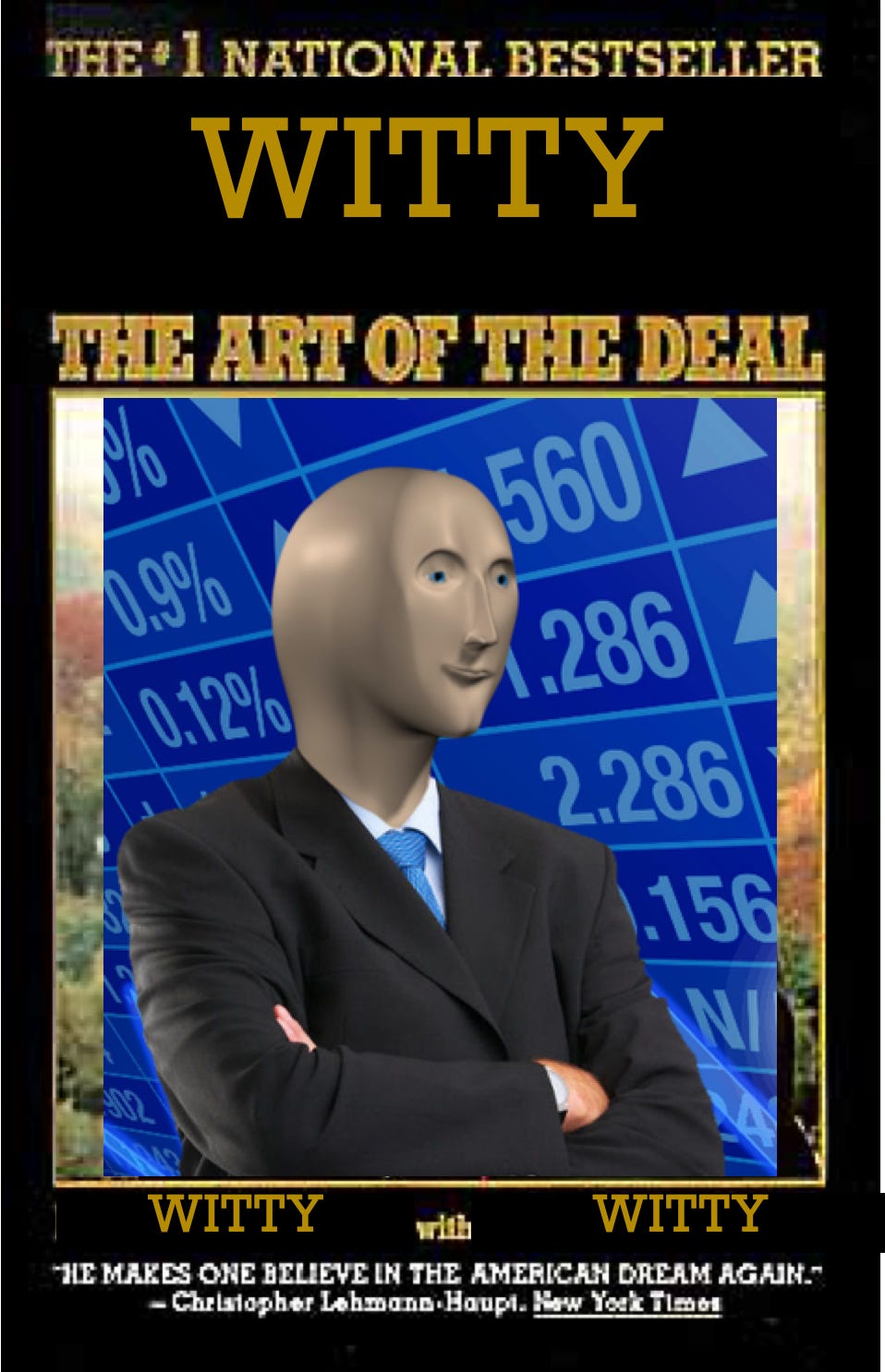👋🏽 Welcome to Witty Wealth’s The Daily Wit. We get to the point on what you need to know for your tech stock investing journey. 1381 of us have our wits.
If you’re enjoying this, please share Witty with someone you think will enjoy us too.👇🏽
Greed was in the air.
It was fall of 2017 and I just moved back to San Francisco. Everyone in the startup scene was talking about one thing: Cryptomania.
Blockchain was viewed as game changing technology. Its merits allowed Cryptocurrency companies to offer new, verified ways to exchange money. People were rushing to fund the future! In the minds of many, even better, this time, us common folks could invest too! Watch out Venture Capitalists...
For context, these Crypto companies held initial coin offerings, the cryptocurrency industry’s equivalent to an Initial Public Offering (IPO). These companies raised tens of millions, even over a billion, dollars through ICOs.
Demand was overflowing. The champagne was popping. The excitement was electric! What’s not to love?

Sadly, well a lot. Over 80% of the ICOs in 2017 were found to be scams.
In hindsight, these ICO’s took off due to speculation. Most buyers bought with the intention to make a quick buck.
I bring this up because right now, I see the seeds of SPACmania emerging. Much of the early discussion on SPAC message boards are about arbitrage.
SPACs paint a similar picture
In ‘What the SPAC?’, I wrote:
As a technology investor, you should get familiar with SPACs. Why? Simply:
SPACs allow long term tech cos go public earlier
SPACs allow access to higher risk, higher reward opportunities than what’s out there today
These characteristics are similar to the ones pitched during Cryptomania. While I believe SPACs can be a force for good, I wonder: what stops SPACmania from happening?
Funny enough, just as I wrote the above sentence, Jim Cramer said this about Tesla (not a SPAC, but frothy like one)
Someone analogized Tesla to 2017 Crypto. Rapper Meek Mill said he wants in.


SPAC to the Future baby!
My (unverified) working theory is that it's up to the market to decide if SPACmania will happen. There are safeguards in place (e.g. SEC Rule 419, Penny Stock Reform Act, Form Super 8-K) but none I know that will single handedly stop a ShitSPAC (coined after the crypto slang, Shitcoins).
Note: If you are professionally familiar with SPACs, I’d love to learn from you! Please reply to this post.
Why does this matter?
In general, SPACs are a much riskier proposition than a typical stock. According to SPAC Research, 73% of SPACs have lost value after they announced their M&A.
Yet some, like DraftKings, Nikola, and Virgin Galactic, are up multiples post-announcement.
So, what differentiates SPAC winners from the losers? After having a couple off the record conversations and poking around the internet, my takeaway is this: the credibility SPAC Sponsor is the #1 indicator of post M&A success.

Let’s find out by asking my favorite question. Why?
Me, myself, and Management
Until a SPAC has M&A’d, it’s a blank check with a Sponsor attached. Money is a commodity. Rumors the money will M&A into is a commodity. The Sponsor is the only non-commodity.
Here are the rule of thumb questions I found matter. Does the Sponsor have:
A history of allocating money well at scale?
Experience managing and / or being on the board of public companies?
Experience with similar bets that the SPAC is focusing on?
If a Sponsor has all three of these, they have credibility. Credibility especially matters when one is responsible for allocating a vast sum of money towards a risky situation.
I looked into the SPACs that led to DraftKings, Nikola, and Virgin Galactic. All three of these SPAC sponsors answer yes to each of these questions.
In short, credibility helps at every step of the SPAC process. The more credibility the Sponsor is, the more they will:
Raise money
Attract credible targets
Get better terms from other stakeholders
I take that back. Credibility doesn’t help at every step. It’s the only thing that matters.

See you tomorrow,
Note: This content is for informational purposes only. It should not be relied upon as legal, business, investment, or tax advice. Your use of the information contained here is at your own risk.




